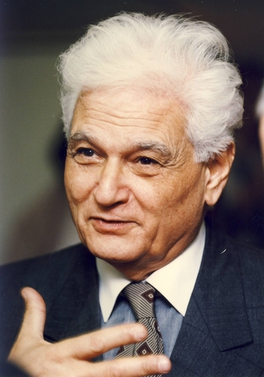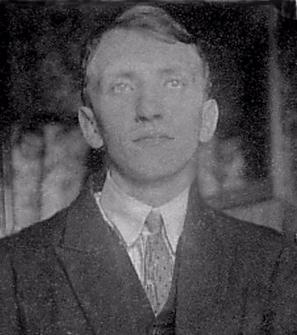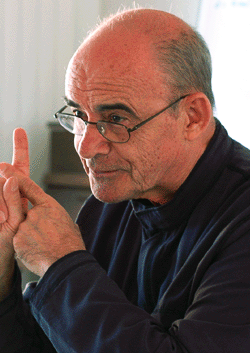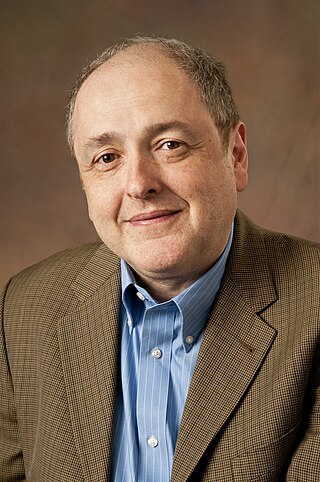External links
- Christopher Fynsk; faculty profile at European Graduate School Biography, bibliography, articles and video lectures
- Christopher Fynsk; faculty profile at University of Aberdeen
Christopher Ingebreth Fynsk (born August 30, 1952) is an American philosopher. He is Professor and Dean of the Division of Philosophy, Art, and Critical Thought at the European Graduate School in Saas-Fee, Switzerland and Professor Emeritus at the University of Aberdeen. [1] [2] He is well known for his work relating the political and literary aspects of continental philosophy. Fynsk's work is closely involved with that of Martin Heidegger, Maurice Blanchot, Emmanuel Levinas, Walter Benjamin and several contemporary artists, including Francis Bacon and Salvatore Puglia.
Christopher Fynsk received his doctorate from the Department of Romance Studies at Johns Hopkins University in 1981, after receiving a Diplôme d’Études Approfondies in Philosophy from the University of Strasbourg. He also received an MA in English from the University of California, Irvine, in 1976, and an MA in French at Johns Hopkins University in 1979. He taught in the Philosophy Department at the University of Strasbourg from 1985 to 1987, and from 1981 to 2004 he worked as Professor of Comparative Literature and Philosophy, Co-Director of the Philosophy, Literature and the Theory of Criticism Program and Chair of the Department of Comparative Literature at State University of New York at Binghamton (1991-2004). In 2004, he moved to the University of Aberdeen as a 6th Century Chair to join the faculty of the School of Language and Literature, where he formed the Centre for Modern Thought.

Jacques Derrida was an Algerian-born French philosopher. He developed the philosophy of deconstruction, which he utilized in numerous texts, and which was developed through close readings of the linguistics of Ferdinand de Saussure and Husserlian and Heideggerian phenomenology. He is one of the major figures associated with post-structuralism and postmodern philosophy although he distanced himself from post-structuralism and disowned the word "postmodernity".

Emmanuel Levinas was a French philosopher of Lithuanian Jewish ancestry who is known for his work within Jewish philosophy, existentialism, and phenomenology, focusing on the relationship of ethics to metaphysics and ontology.

Maurice Blanchot was a French writer, philosopher and literary theorist. His work, exploring a philosophy of death alongside poetic theories of meaning and sense, bore significant influence on post-structuralist philosophers such as Gilles Deleuze, Michel Foucault, Jacques Derrida and Jean-Luc Nancy.

Jean-Luc Nancy was a French philosopher. Nancy's first book, published in 1973, was Le titre de la lettre, a reading of the work of French psychoanalyst Jacques Lacan, written in collaboration with Philippe Lacoue-Labarthe. Nancy is the author of works on many thinkers, including La remarque spéculative in 1973 on Georg Wilhelm Friedrich Hegel, Le Discours de la syncope (1976) and L'Impératif catégorique (1983) on Immanuel Kant, Ego sum (1979) on René Descartes, and Le Partage des voix (1982) on Martin Heidegger.

Stanley Louis Cavell was an American philosopher. He was the Walter M. Cabot Professor of Aesthetics and the General Theory of Value at Harvard University. He worked in the fields of ethics, aesthetics, and ordinary language philosophy. As an interpreter, he produced influential works on Wittgenstein, Austin, Emerson, Thoreau, and Heidegger. His work is characterized by its conversational tone and frequent literary references.

Being and Time is the 1927 magnum opus of German philosopher Martin Heidegger and a key document of existentialism. Being and Time had a notable impact on subsequent philosophy, literary theory and many other fields. Though controversial, its stature in intellectual history has been compared with works by Kant and Hegel. The book attempts to revive ontology through an analysis of Dasein, or "being-in-the-world." It is also noted for an array of neologisms and complex language, as well as an extended treatment of "authenticity" as a means to grasp and confront the unique and finite possibilities of the individual.
Geoffrey Bennington is Asa Griggs Candler Professor of French and Professor of Comparative Literature at Emory University in Georgia, United States, and Professor of Philosophy at the European Graduate School in Saas-Fee, Switzerland, as well as a member of the International College of Philosophy in Paris. He is a literary critic and philosopher, best known as an expert on deconstruction and the works of Jacques Derrida and Jean-François Lyotard. Bennington has translated many of Derrida's works into English.
Kevin John Hart is an Anglo-Australian theologian, philosopher and poet. He is currently Edwin B. Kyle Professor of Christian Studies and Chair of the Religious Studies Department at the University of Virginia. As a theologian and philosopher, Hart's work epitomizes the "theological turn" in phenomenology, with a focus on figures like Maurice Blanchot, Emmanuel Levinas, Jean-Luc Marion and Jacques Derrida. He has received multiple awards for his poetry, including the Christopher Brennan Award and the Grace Leven Prize for Poetry twice.

Simon Critchley is an English philosopher and the Hans Jonas Professor of Philosophy at the New School for Social Research in New York, USA.
Dagfinn Føllesdal is a Norwegian-American philosopher. He is the Clarence Irving Lewis Professor of Philosophy Emeritus at Stanford University, and professor emeritus at the University of Oslo.
Robert L. Bernasconi is Edwin Erle Sparks Professor of Philosophy at Pennsylvania State University. He is known as a reader of Martin Heidegger and Emmanuel Levinas, and for his work on the concept of race. He has also written on the history of philosophy.
Gérard Granel was a French philosopher and translator.
Nader El-Bizri is the Dean of the College of Arts, Humanities, and Social Sciences at the University of Sharjah. He served before as a tenured longstanding full Professor of philosophy and civilization studies at the American University of Beirut, where he also acted as an Associate Dean of the Faculty of Arts and Sciences, and as the Director of the General Education program. El-Bizri specializes in phenomenology, Islamic science and philosophy, and architectural theory. He is the author or editor of several books, including The Phenomenological Quest between Avicenna and Heidegger (2000).

Marlene Zarader, born in 1949, is a French philosopher. She teaches philosophy at the Paul Valéry University, Montpellier III in Montpellier. Since became a member of the Institut Universitaire de France in 2007. Her book The Unthought Debt was originally published in French in 1990. The work was translated to English by Bettina Bergo.
Ethan Kleinberg works on the acrobatics of modern thought. He is Class of 1958 Distinguished Professor of History and Letters at Wesleyan University, Editor-in-Chief of History and Theory and was Director of Wesleyan University's Center for the Humanities. Kleinberg's research interests include European intellectual history with special interest in France and Germany, critical theory, educational structures, and the philosophy of history. Kleinberg's wide-ranging scholarly work spans across the fields of history, philosophy, comparative literature and religion. Together with Joan Wallach Scott and Gary Wilder he is a member of the Wild On Collective who co-authored the "Theses on Theory and History" and started the #TheoryRevolt movement. He is the author of Emmanuel Levinas's Talmudic Turn: Philosophy and Jewish Thought (SUP); Haunting History: for a deconstructive approach to the past (SUP); Generation Existential: Martin Heidegger’s Philosophy in France, 1927-61 (CUP) which was awarded the 2006 Morris D. Forkosch prize for the best book in intellectual history by the Journal of the History of Ideas and co-editor of the volume Presence: Philosophy, History, and Cultural Theory for the Twenty-First Century (CUP). He is completing a book length project titled The Surge: a new compass of history for the end-time of truth.

Brian Leiter is an American philosopher and legal scholar who is Karl N. Llewellyn Professor of Jurisprudence at the University of Chicago Law School and founder and Director of Chicago's Center for Law, Philosophy & Human Values. A review in Notre Dame Philosophical Reviews described Leiter as "one of the most influential legal philosophers of our time", while a review in The Journal of Nietzsche Studies described Leiter's book Nietzsche on Morality (2002) as "arguably the most important book on Nietzsche's philosophy in the past twenty years."
Dr. Jens Michael Zimmermann is a German-Canadian Christian philosopher, theologian, and professor who specializes in hermeneutics and the philosophical and theological roots of humanism.
William Franke is an American academic and philosopher, professor of Comparative Literature at Vanderbilt University. A main exposition of his philosophical thinking is A Philosophy of the Unsayable (2014), a book which dwells on the limits of language in order to open thought to the inconceivable. On this basis, the discourses of myth, mysticism, metaphysics, and the arts take on new and previously unsuspected types of meaning. This book is the object of a Syndicate Forum and of a collective volume of essays by diverse hands in the series “Palgrave Frontiers in Philosophy of Religion”: Contemporary Debates in Negative Theology and Philosophy. Franke's apophatic philosophy is based on his two-volume On What Cannot Be Said: Apophatic Discourses in Philosophy, Religion, Literature, and the Arts (2007), which reconstructs in the margins of philosophy a counter-tradition to the thought and culture of the Logos. Franke extends this philosophy in an intercultural direction, entering the field of comparative philosophy, with Apophatic Paths from Europe to China: Regions Without Borders. In On the Universality of What is Not: The Apophatic Turn in Critical Thinking, Franke argues for application of apophatic thinking in a variety of fields and across disciplines, from humanities to cognitive science, as key to reaching peaceful mutual understanding in a multicultural world riven by racial and gender conflict, religious antagonisms, and national and regional rivalries.

William Egginton is a literary critic and philosopher. He has written extensively on a broad range of subjects, including theatricality, fictionality, literary criticism, psychoanalysis and ethics, religious moderation, and theories of mediation.